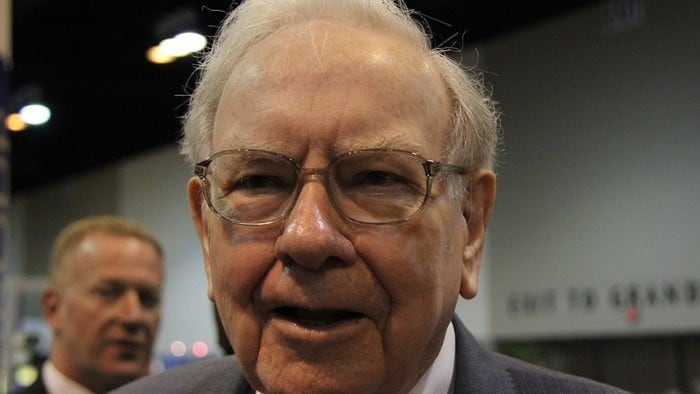This article was originally published on Fool.com. All figures quoted in US dollars unless otherwise stated.
You're probably at least somewhat familiar with Warren Buffett, CEO of Berkshire Hathaway (NYSE: BRK.A) (NYSE: BRK.B). That's likely due to his amazing long-term investing record. Consider, for example, that according to his 2024 letter to shareholders, his company has averaged annual gains of 19.9% between 1965 and 2024 -- that's 59 years! In total, it's a gain of 5,502,284% -- enough to turn an initial investment of, say, $1,000 into close to $45 million dollars. (The S&P 500 index, in contrast, averaged 10.4% annually during that period.)
Despite all of the admiration for the guy, there are often articles here and there questioning his investing moves. These happen most frequently during bull markets when growth stocks are outperforming Berkshire.
Here's a look at how some have questioned Buffett and how -- now -- some are praising his seemingly prescient investing moves. There's a lot we can learn from Warren Buffett, so I'll review a few key tenets to consider.
Questioning Buffett
Even in the highly esteemed periodical The Economist, you can find Buffett critics. Last September, for example, an article in it noted, "Between 2009 and 2023, Berkshire's annual return averaged 13%, compared with 15% for the S&P 500." That is true, and Buffett explained that due to its size (recently sporting a market value of $1 trillion), it's not likely to grow as fast going forward as it did in the past. Still, it bested the S&P 500 in 2024 -- 25.5% vs 25% -- and in 2022, shares of Berkshire gained 4% while the S&P 500 sank by 18%.
In August, Andrew Bary in Barron's noted, "The Berkshire Hathaway CEO is hunkering down by selling stocks and raising cash for the conglomerate, raising questions about whether he is souring on the outlook for the stock market and economy."
Some may have seen Buffett as too cautious, as the S&P 500 gained 2.28% in August, followed by 2.02% in September, before dropping 1% in October and then surging 5.73% in November. That's short-term thinking, though, and Buffett is famous for taking a long view. With the S&P 500 down more than 7% over the past month, Buffett's moves are looking prescient. He's now sitting on hundreds of billions of dollars, able to deploy them to buy great stocks or entire companies that are on sale.
Some questions about Buffett that I see as reasonable are ones concerning how his company will go on after he moves on to the stock market in the sky. Buffett is 94 years old, after all, and (probably) won't live forever. Fortunately, Buffett hasn't neglected to set up the company to thrive in the future. He has tapped one of his talented managers, Greg Abel, to succeed him in managing the many businesses under Berkshire's roof and has two investing lieutenants, too, to oversee investments.
What can we learn from Buffett?
There are gobs of lessons we can take from how Buffett invests -- many of which he has freely shared with anyone who'd care to listen. For example:
Be contrarian
Buffett famously advised investors to "be fearful when others are greedy and to be greedy only when others are fearful." In other words, don't follow the crowd. Use your brain and make rational investment decisions, such as selling out of various stocks when they seem overvalued.
Stick to what you know
Buffett has long spoken about how he stays within his "circle of competence." So even if a biotechnology or cloud-computing stock seems poised for greatness, Buffett won't invest unless he has a solid understanding of its business model, risks, opportunities, and so on. (You may see some tech-heavy companies in Berkshire's portfolio these days, but remember that his lieutenants are doing a chunk of the buying.)
Don't be afraid to do nothing
It can feel like you should always be doing something, such as buying or selling, as an investor. But Buffett has long extolled the virtue of doing nothing when there's nothing to be done. You would do well to keep reading and learning all the time, but it's OK to invest in great companies and then just let them perform well for you over many years, if not decades. Buffett has quipped that his favorite holding period is "forever."
Expect mistakes, but learn from them
Buffett often confesses to various mistakes he has made, and it's obvious that we lesser investors will blunder on occasion, too. But many losses can be avoided if we take some time to think about and learn from our errors in order to avoid making them again. The more you learn about Warren Buffett, the better you may become at investing.
This article was originally published on Fool.com. All figures quoted in US dollars unless otherwise stated.









